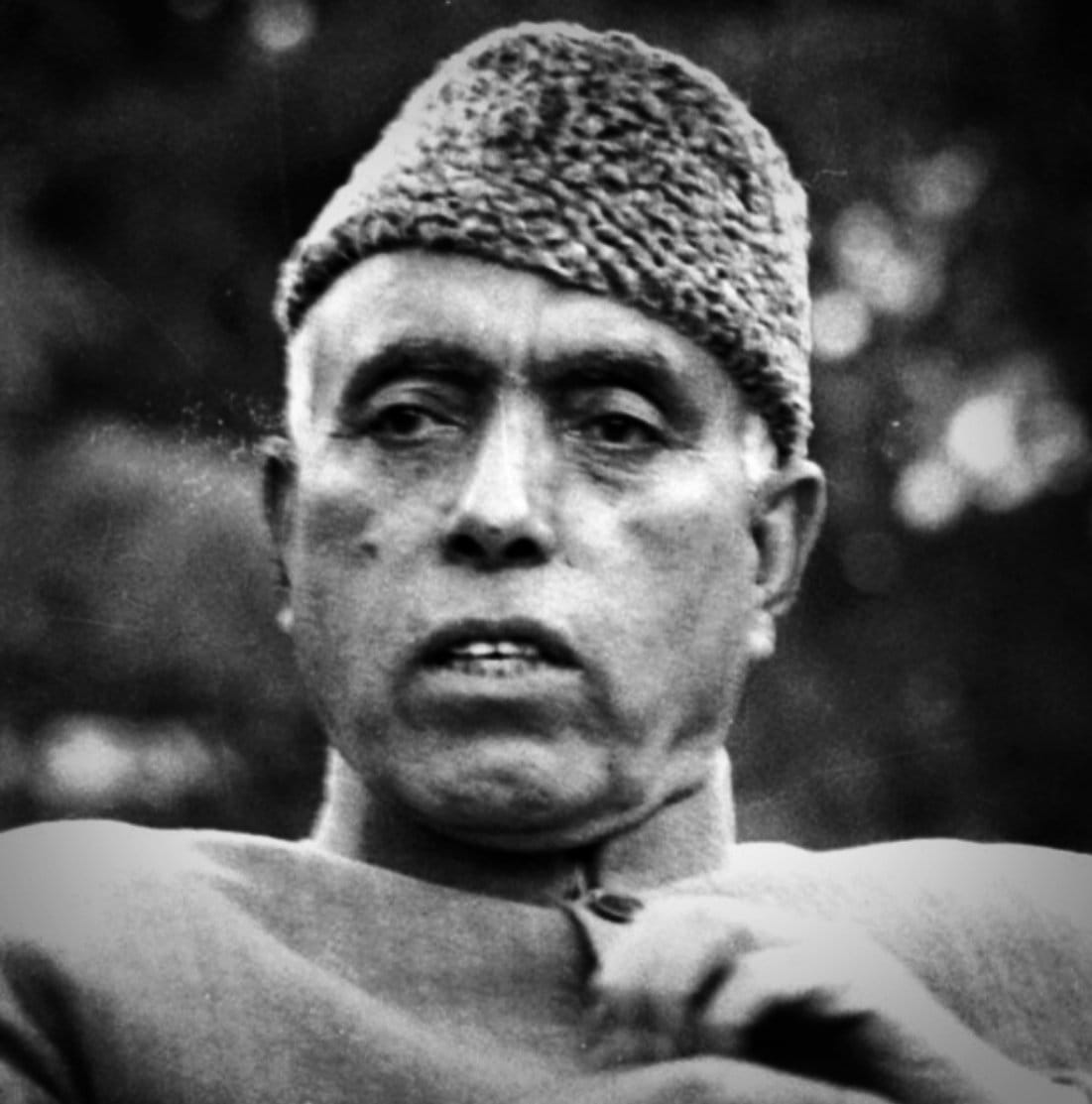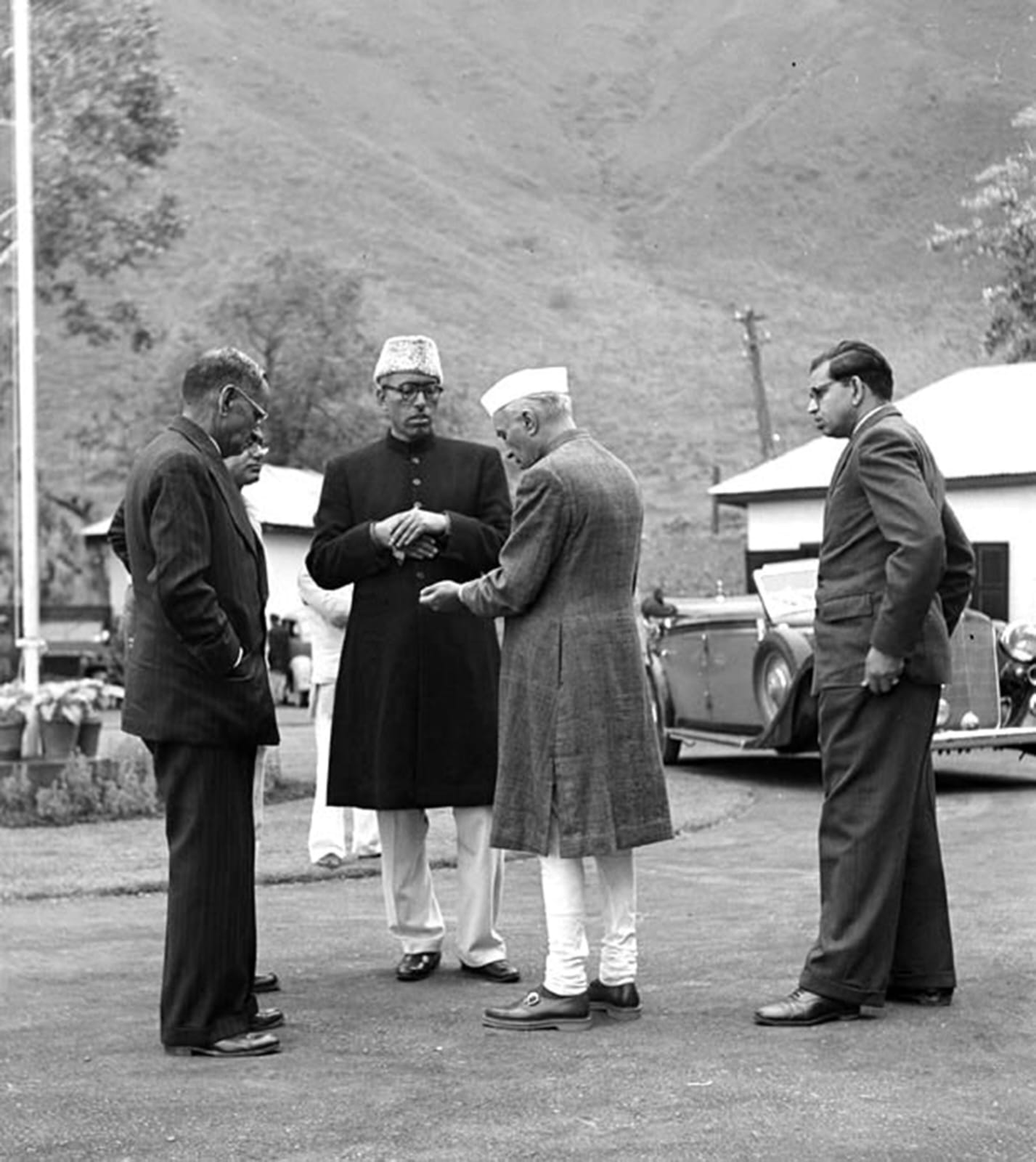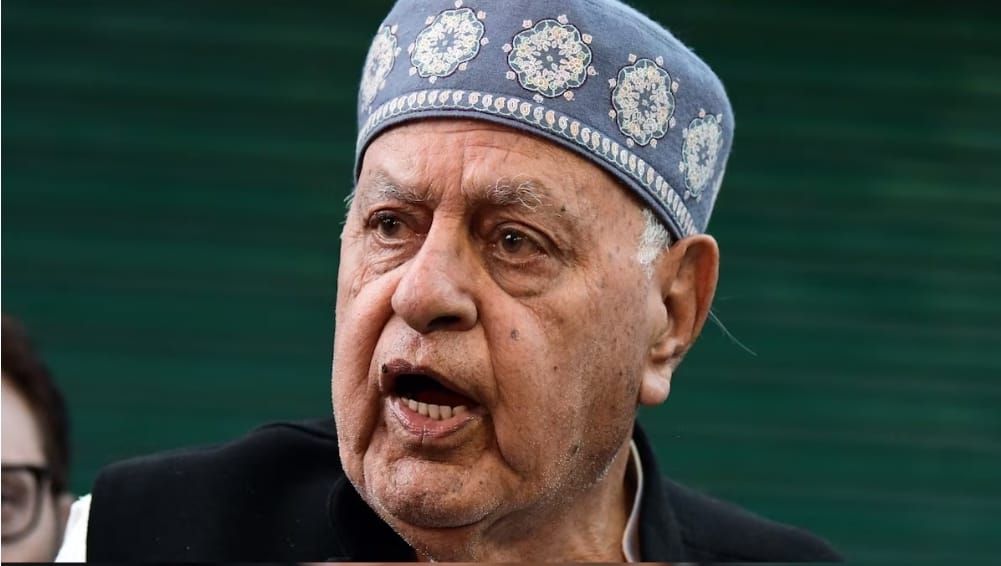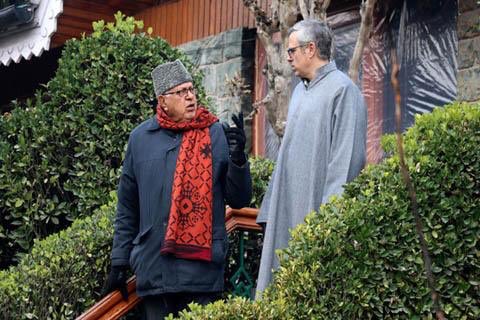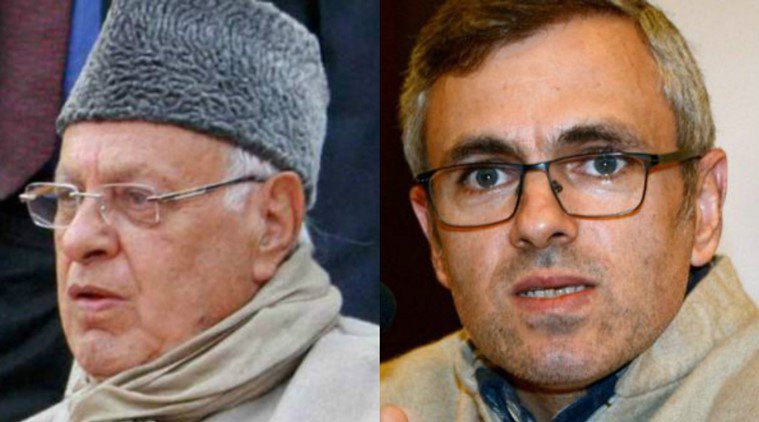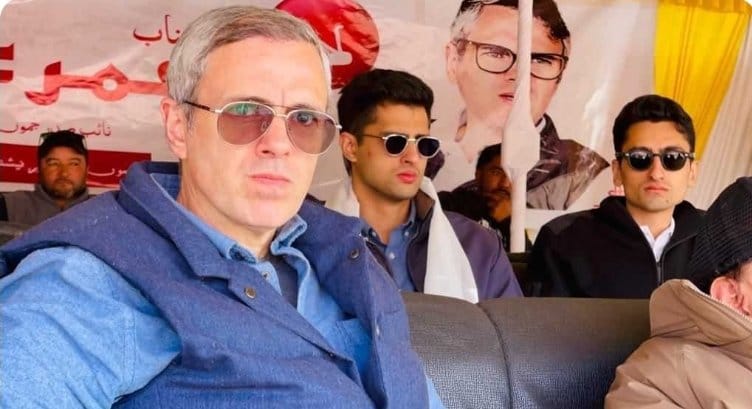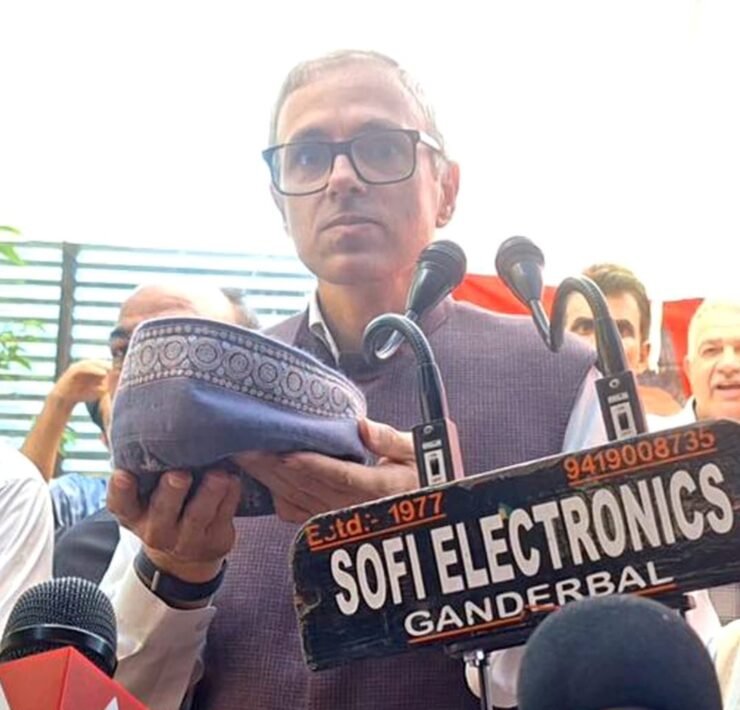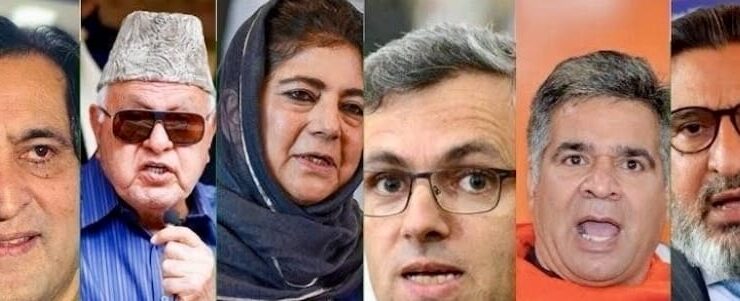How the Abdullah Dynasty Has Marginalized Opposition in Kashmir
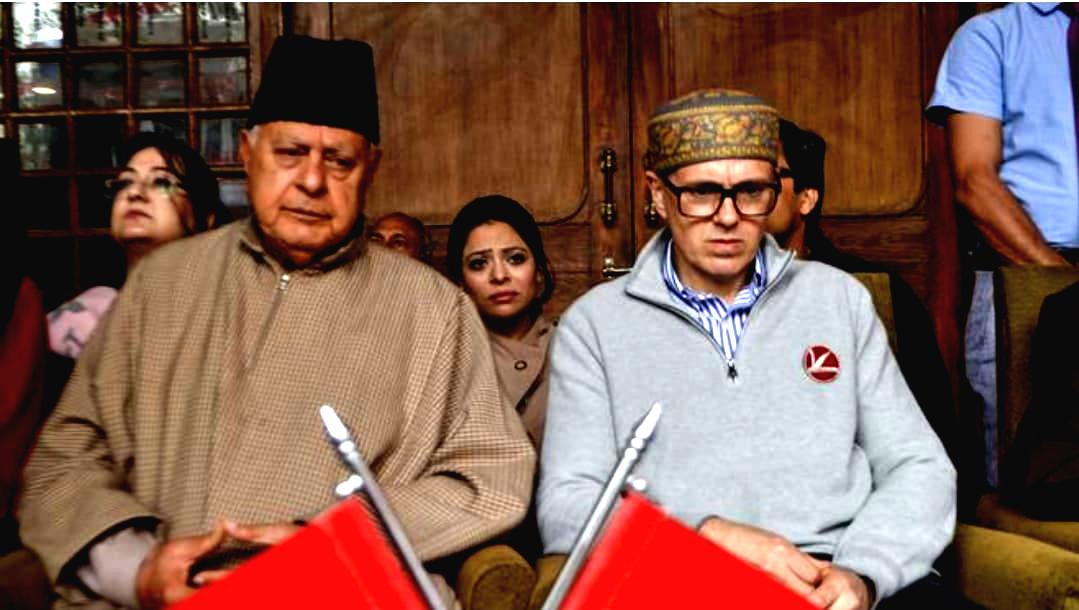
In a recent tweet, Omar Abdullah, former Chief Minister of Jammu and Kashmir and a prominent figure of the Abdullah political dynasty, remarked: “Rashid’s victory, without doubt, will empower secessionists, and give Kashmir’s defeated Islamist movement a renewed sense of hope.” This tweet, while ostensibly a critique of an electoral outcome, is emblematic of a deeper, entrenched pattern within the Abdullah family’s political ethos—a pattern marked by a systematic marginalization and suppression of opposition, reflecting a longstanding intolerance for any ideological or political challenge to their authority. This reflexive disdain for dissent is not an isolated phenomenon but a recurring motif throughout the Abdullah family’s political history. From Sheikh Mohammad Abdullah’s early dominance to Farooq Abdullah’s opportunistic maneuvers and Omar Abdullah’s recent controversies, the family’s legacy is steeped in a tradition of undermining, silencing, and dismantling opposition.
Sheikh Mohammad Abdullah: The Architect of Authoritarianism
Sheikh Mohammad Abdullah, often lauded as the “Lion of Kashmir,” laid the cornerstone of the Abdullah family’s political hegemony. However, his ascent was not merely a triumph of democratic values but a strategic consolidation of power marked by the systematic exclusion and suppression of dissenting voices.
The Rebranding of the Muslim Conference
One of Sheikh Abdullah’s most consequential maneuvers was the reconstitution of the Jammu and Kashmir Muslim Conference into the National Conference in 1932. Originally founded to advocate for the political and social rights of the Muslim majority, the Muslim Conference was a formidable entity. Sheikh Abdullah’s decision to rebrand the party as a secular National Conference was a tactical maneuver aimed at broadening his political base while simultaneously marginalizing those within the party who espoused a more religious agenda.
This rebranding not only diluted the party’s original mission but also led to a schism within its ranks. The faction that opposed this shift went on to reestablish the Muslim Conference under its original principles. By suppressing internal dissent and undermining alternative visions, Sheikh Abdullah ensured the National Conference’s dominance and curtailed any potential ideological competition.
The 1953 Dismissal: A Reflection of Growing Opposition
Sheikh Abdullah’s tenure was increasingly marked by authoritarian tendencies, which eventually culminated in his dismissal and imprisonment in 1953 by the Indian government. While often portrayed as a betrayal by New Delhi, this event also reflected the mounting opposition to his governance within Jammu and Kashmir.
Sheikh Abdullah’s increasing authoritarianism and his detachment from the central government alienated significant segments of the population. His inability to tolerate dissent and his efforts to suppress opposing viewpoints created an environment ripe for political upheaval. The ease with which his opponents mobilized against him highlights the extent to which his governance style had marginalized and repressed alternative political voices.
Farooq Abdullah: The Opportunist’s Legacy of Suppression
Farooq Abdullah, Sheikh Abdullah’s son, inherited not only the leadership of the National Conference but also his father’s legacy of authoritarianism. His tenure was marked by a series of actions that perpetuated the family’s tradition of marginalizing and suppressing opposition.
The entrenched pattern of the Abdullah family is systematic marginalization and suppression of opposition and intolerance for any ideological or political challenge to their authority.
The 1983 Elections: Consolidation Through Marginalization
The 1983 state elections in Jammu and Kashmir were a pivotal moment for Farooq Abdullah. His campaign was not merely about securing electoral victory but about marginalizing and neutralizing any potential rivals, particularly the Congress party led by Indira Gandhi. Farooq’s use of state machinery to suppress opposition, coupled with his engagement in backdoor political deals, underscored his commitment to maintaining power at any cost.
His victory in the elections was less a reflection of popular mandate and more a result of calculated efforts to marginalize and suppress any ideological competitors. This electoral strategy was a manifestation of the Abdullah family’s broader approach to politics, where maintaining dominance often involved undermining democratic processes.
The 1984 Coup: Political Opportunism and Betrayal
In 1984, Farooq Abdullah’s government was dismissed by the then-Governor of Jammu and Kashmir, Jagmohan, in what many view as a politically motivated coup. While this event is often seen as central interference in state politics, it also highlighted the growing discontent within Jammu and Kashmir with Farooq’s leadership.
Farooq’s return to power in 1986, through the controversial Rajiv-Farooq accord—a coalition with the Congress party—was a stark example of political opportunism. This alliance, formed with the very party that had played a role in his dismissal, was perceived as a betrayal of the electorate and an attempt to suppress any internal dissent within the National Conference that opposed such an alliance. Farooq Abdullah’s actions during this period reinforced a culture of opportunism and suppression, ensuring that dissenting voices were marginalized.
The Insurgency Era: A Heavy-Handed Response
The insurgency that erupted in Jammu and Kashmir in the late 1980s posed a formidable challenge to Farooq Abdullah’s administration. Instead of addressing the root causes of the unrest, Farooq opted for a militaristic approach, relying on the Indian military to suppress the insurgents through force.
Farooq’s strategy exacerbated the conflict, leading to widespread human rights abuses and further alienating large sections of the population. His refusal to engage in meaningful dialogue or address the grievances of the populace illustrated a broader pattern within the Abdullah family’s governance—a reliance on suppression rather than engagement to deal with opposition.
Omar Abdullah: The Inheritor of an Authoritarian Legacy
Omar Abdullah, the third-generation leader of the Abdullah family, has perpetuated the family’s tradition of marginalizing opposition, albeit within a rapidly evolving political context. His tenure as Chief Minister of Jammu and Kashmir was characterized by several controversial decisions that echoed the family’s historical approach to dissent.
The 2008 Amarnath Land Row: Exploiting Communal Tensions
Omar Abdullah’s involvement in the 2008 Amarnath land transfer controversy highlighted his willingness to exploit communal tensions for political gain. The land transfer decision sparked widespread protests and unrest in the Kashmir Valley. Omar’s inflammatory rhetoric during this period, rather than seeking to de-escalate the situation, exacerbated the communal divide.
By stoking tensions rather than fostering dialogue, Omar Abdullah’s actions during the Amarnath controversy mirrored the Abdullah family’s historical approach to opposition—using divisive tactics to marginalize dissent and consolidate power.
The 2010 Unrest: A Brutal Suppression
The civil unrest in 2010, triggered by the killing of a teenager by security forces, was one of the most significant challenges of Omar Abdullah’s tenure. The unrest quickly evolved into a mass movement against the state government. Omar’s response, characterized by a brutal crackdown and excessive use of force, was emblematic of the Abdullah family’s historical approach to dissent.
Rather than addressing the underlying issues driving the protests, Omar Abdullah’s government opted for suppression. The resultant casualties and human rights violations only served to deepen the resentment among the population. Omar’s failure to engage with the grievances of the people and his reliance on repressive tactics underscored his adherence to the family’s legacy of authoritarianism.
Omar Abdullah’s recent tweet serves as a revealing snapshot of the Abdullah family’s entrenched approach to politics in Jammu and Kashmir. From Sheikh Mohammad Abdullah’s strategic suppression of dissent to Farooq Abdullah’s opportunistic alliances and Omar Abdullah’s heavy-handed tactics, the Abdullah family has consistently marginalized, suppressed, and crushed any opposition that threatened their hold on power. This legacy of authoritarianism has had a profound impact on the political landscape of Jammu and Kashmir, stifling democratic processes and fostering an environment of mistrust and alienation. As the region continues to grapple with its political future, the Abdullah family’s history serves as a cautionary tale of the dangers inherent in an approach that prioritizes control over democratic engagement. The time has come for Jammu and Kashmir to seek leadership that embraces pluralism and democratic values, rather than one that perpetuates a legacy of suppression. The challenge for the region is to move beyond the politics of marginalization and forge a future where all voices are heard and respected.
Sheikh Abdullah’s tenure was increasingly marked by authoritarian tendencies, which eventually culminated in his dismissal and imprisonment in 1953 by the Indian government. While often portrayed as a betrayal by New Delhi, this event also reflected the mounting opposition to his governance within Jammu and Kashmir.
Sheikh Abdullah’s increasing authoritarianism and his detachment from the central government alienated significant segments of the population. His inability to tolerate dissent and his efforts to suppress opposing viewpoints created an environment ripe for political upheaval. The ease with which his opponents mobilized against him highlights the extent to which his governance style had marginalized and repressed alternative political voices.
Farooq Abdullah: The Opportunist’s Legacy of Suppression
Farooq Abdullah, Sheikh Abdullah’s son, inherited not only the leadership of the National Conference but also his father’s legacy of authoritarianism. His tenure was marked by a series of actions that perpetuated the family’s tradition of marginalizing and suppressing opposition.
Omar Abdullah, the third-generation leader of the Abdullah family, has perpetuated the family’s tradition of marginalizing opposition, albeit within a rapidly evolving political context.
The 1983 Elections: Consolidation Through Marginalization
The 1983 state elections in Jammu and Kashmir were a pivotal moment for Farooq Abdullah. His campaign was not merely about securing electoral victory but about marginalizing and neutralizing any potential rivals, particularly the Congress party led by Indira Gandhi. Farooq’s use of state machinery to suppress opposition, coupled with his engagement in backdoor political deals, underscored his commitment to maintaining power at any cost.
His victory in the elections was less a reflection of popular mandate and more a result of calculated efforts to marginalize and suppress any ideological competitors. This electoral strategy was a manifestation of the Abdullah family’s broader approach to politics, where maintaining dominance often involved undermining democratic processes.
The 1984 Coup: Political Opportunism and Betrayal
In 1984, Farooq Abdullah’s government was dismissed by the then-Governor of Jammu and Kashmir, Jagmohan, in what many view as a politically motivated coup. While this event is often seen as central interference in state politics, it also highlighted the growing discontent within Jammu and Kashmir with Farooq’s leadership.
Farooq’s return to power in 1986, through the controversial Rajiv-Farooq accord—a coalition with the Congress party—was a stark example of political opportunism. This alliance, formed with the very party that had played a role in his dismissal, was perceived as a betrayal of the electorate and an attempt to suppress any internal dissent within the National Conference that opposed such an alliance. Farooq Abdullah’s actions during this period reinforced a culture of opportunism and suppression, ensuring that dissenting voices were marginalized.
The Insurgency Era: A Heavy-Handed Response
The insurgency that erupted in Jammu and Kashmir in the late 1980s posed a formidable challenge to Farooq Abdullah’s administration. Instead of addressing the root causes of the unrest, Farooq opted for a militaristic approach, relying on the Indian military to suppress the insurgents through force.
Farooq’s strategy exacerbated the conflict, leading to widespread human rights abuses and further alienating large sections of the population. His refusal to engage in meaningful dialogue or address the grievances of the populace illustrated a broader pattern within the Abdullah family’s governance—a reliance on suppression rather than engagement to deal with opposition.
Omar Abdullah: The Inheritor of an Authoritarian Legacy
Omar Abdullah, the third-generation leader of the Abdullah family, has perpetuated the family’s tradition of marginalizing opposition, albeit within a rapidly evolving political context. His tenure as Chief Minister of Jammu and Kashmir was characterized by several controversial decisions that echoed the family’s historical approach to dissent.
The 2008 Amarnath Land Row: Exploiting Communal Tensions
Omar Abdullah’s involvement in the 2008 Amarnath land transfer controversy highlighted his willingness to exploit communal tensions for political gain. The land transfer decision sparked widespread protests and unrest in the Kashmir Valley. Omar’s inflammatory rhetoric during this period, rather than seeking to de-escalate the situation, exacerbated the communal divide.
By stoking tensions rather than fostering dialogue, Omar Abdullah’s actions during the Amarnath controversy mirrored the Abdullah family’s historical approach to opposition—using divisive tactics to marginalize dissent and consolidate power.
The 2010 Unrest: A Brutal Suppression
The civil unrest in 2010, triggered by the killing of a teenager by security forces, was one of the most significant challenges of Omar Abdullah’s tenure. The unrest quickly evolved into a mass movement against the state government. Omar’s response, characterized by a brutal crackdown and excessive use of force, was emblematic of the Abdullah family’s historical approach to dissent.
Rather than addressing the underlying issues driving the protests, Omar Abdullah’s government opted for suppression. The resultant casualties and human rights violations only served to deepen the resentment among the population. Omar’s failure to engage with the grievances of the people and his reliance on repressive tactics underscored his adherence to the family’s legacy of authoritarianism.
The Abdullah family’s legacy is steeped in a tradition of undermining, silencing, and dismantling opposition
Omar Abdullah’s recent tweet serves as a revealing snapshot of the Abdullah family’s entrenched approach to politics in Jammu and Kashmir. From Sheikh Mohammad Abdullah’s strategic suppression of dissent to Farooq Abdullah’s opportunistic alliances and Omar Abdullah’s heavy-handed tactics, the Abdullah family has consistently marginalized, suppressed, and crushed any opposition that threatened their hold on power. This legacy of authoritarianism has had a profound impact on the political landscape of Jammu and Kashmir, stifling democratic processes and fostering an environment of mistrust and alienation. As the region continues to grapple with its political future, the Abdullah family’s history serves as a cautionary tale of the dangers inherent in an approach that prioritizes control over democratic engagement. The time has come for Jammu and Kashmir to seek leadership that embraces pluralism and democratic values, rather than one that perpetuates a legacy of suppression. The challenge for the region is to move beyond the politics of marginalization and forge a future where all voices are heard and respected.
(Dr Toseef Ahmad Bhat is a former Associate Research Fellow at the International Centre for Peace Studies in New Delhi. Having done PhD in Political Science, he is now an Independent researcher based in Kashmir)
Got a fresh perspective? C-KAR invites original articles and opinion pieces that haven’t been published elsewhere. Send your submissions to deputydirector@c-kar.com

